Classic literature has a unique way of capturing the essence of human experience. These novels, written over the centuries, continue to resonate with readers today. Whether you’re a seasoned bookworm or just starting your literary journey, these 20 essential classic novels are a must-read. Let’s dive in and discover the timeless gems that have shaped literature and continue to inspire readers across generations.
Romantic and Social Novels
Pride and Prejudice by Jane Austen
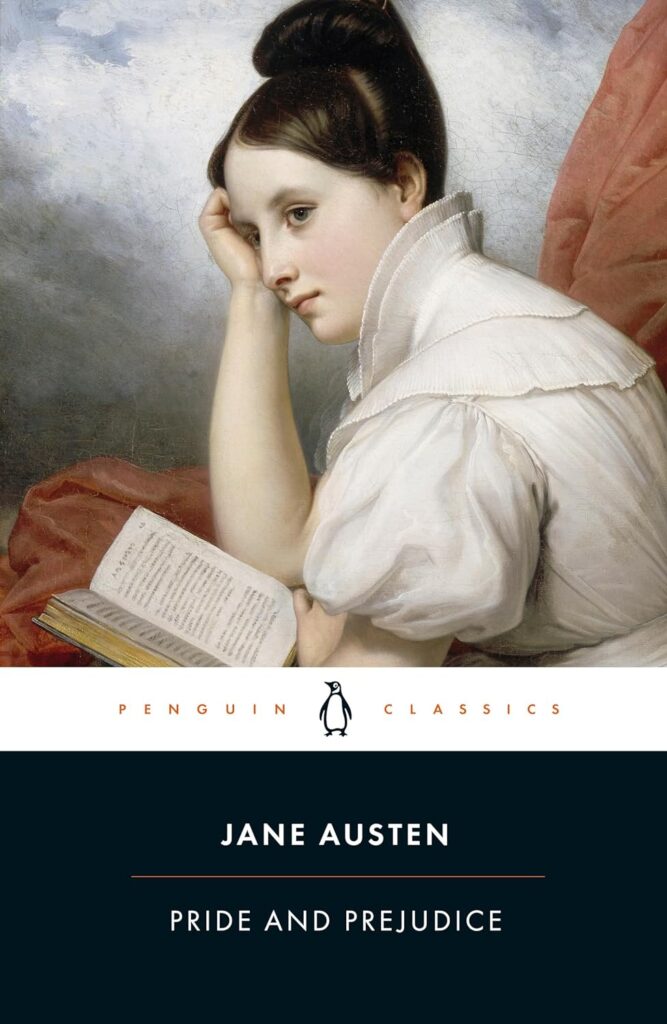
Overview: Set in the early 19th century, “Pride and Prejudice” is a witty exploration of the social intricacies of courtship and marriage. The story follows Elizabeth Bennet, one of five sisters, as she navigates the challenges of love and societal expectations.
Why It’s Essential: Jane Austen’s sharp social commentary and memorable characters make this novel a delightful and insightful read. Elizabeth Bennet’s strength, wit, and independence are qualities that have made her an enduring feminist icon.
Personal Anecdote: I first read “Pride and Prejudice” in high school, and Elizabeth’s quick wit and strong spirit instantly captivated me. I found myself laughing at Mr. Collins’ ridiculous proposals and swooning over Mr. Darcy’s eventual transformation. Austen’s ability to blend humor with serious social critique is truly unparalleled.
Jane Eyre by Charlotte Brontë
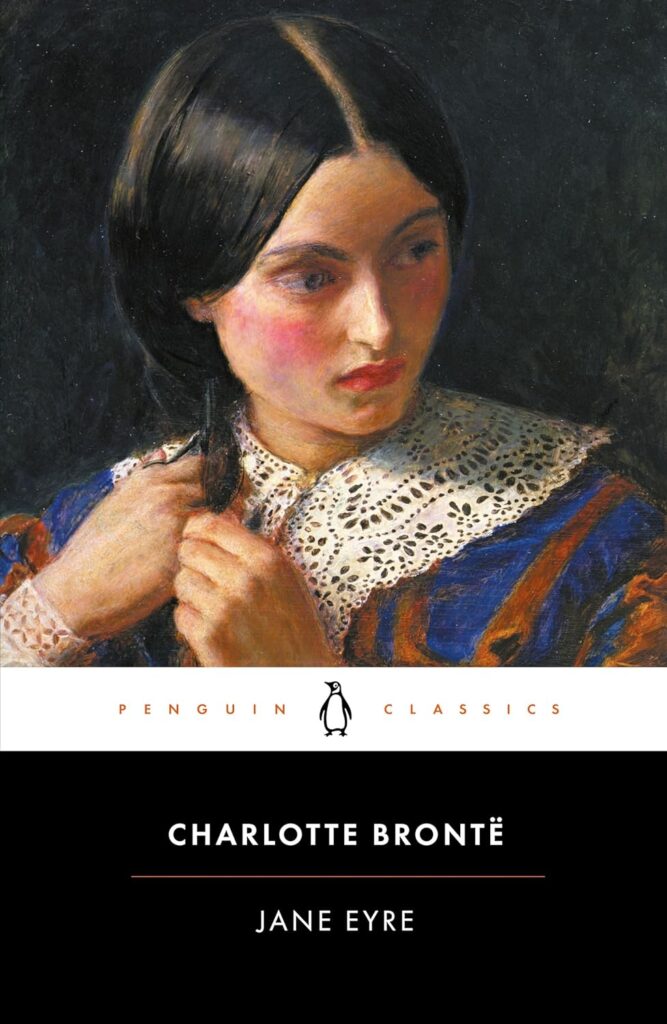
Overview: “Jane Eyre” is a coming-of-age story that follows the life of its eponymous heroine, an orphaned girl who faces a harsh upbringing but remains steadfast in her morals and sense of self. Jane’s journey takes her from a bleak childhood to a tumultuous romance with the brooding Mr. Rochester.
Why It’s Essential: Brontë’s novel is groundbreaking in its portrayal of a woman’s inner life and struggles for autonomy. Jane Eyre’s resilience and moral integrity make her a powerful role model.
Personal Anecdote: I remember reading “Jane Eyre” during a summer break and being struck by Jane’s fierce independence. Her refusal to compromise her principles, even in the face of great personal loss, was deeply inspiring. The gothic elements of the novel also added a thrilling, mysterious dimension that kept me hooked until the very last page.
Wuthering Heights by Emily Brontë
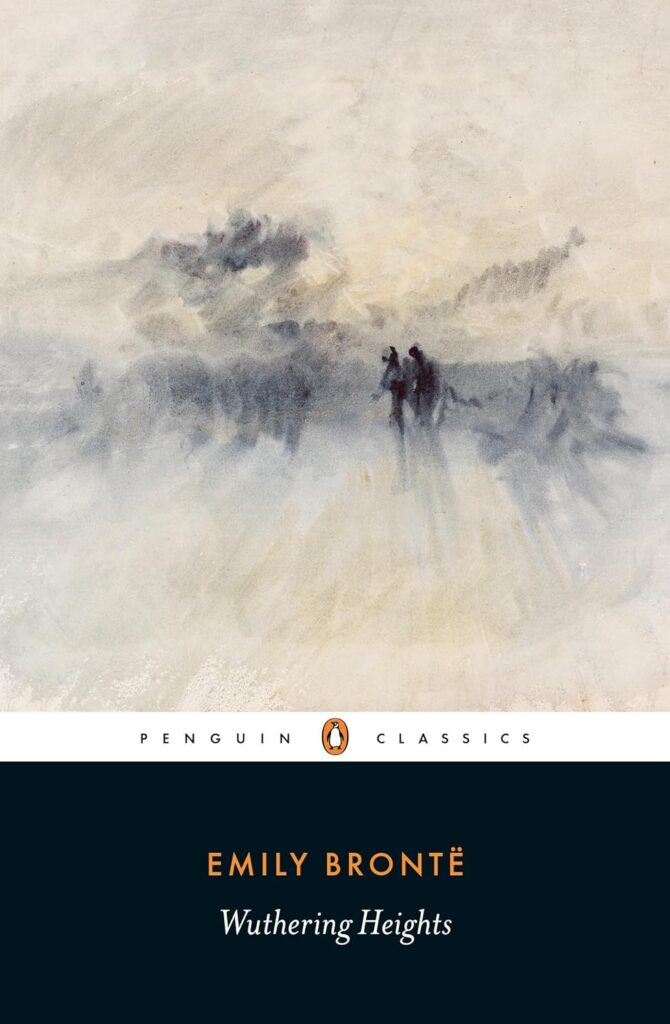
Overview: Set on the desolate Yorkshire moors, “Wuthering Heights” tells the passionate and tragic story of Heathcliff and Catherine Earnshaw. Their intense and destructive relationship drives the narrative, leading to generational consequences.
Why It’s Essential: Emily Brontë’s only novel is renowned for its raw emotion and innovative structure. The dark, brooding atmosphere and complex characters make it a compelling and unforgettable read.
Personal Anecdote: When I read “Wuthering Heights,” I was initially taken aback by the sheer intensity of Heathcliff and Catherine’s relationship. Unlike other romantic tales, this one felt almost primal. The wild moors seemed to mirror the tumultuous emotions of the characters, creating an immersive reading experience that left a lasting impression on me.
Anna Karenina by Leo Tolstoy
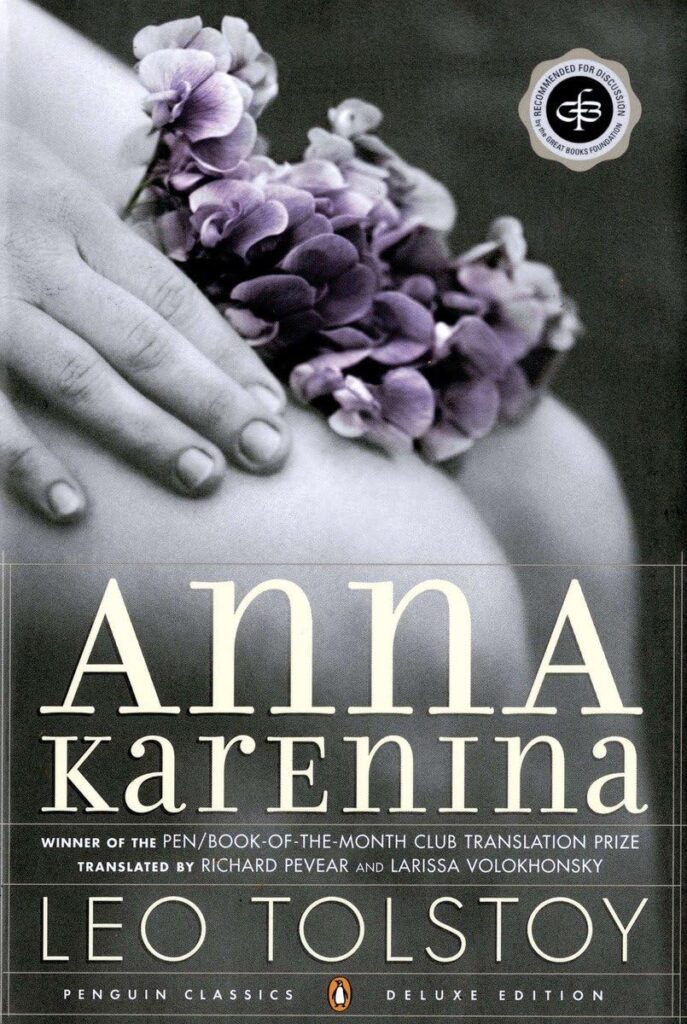
Overview: “Anna Karenina” follows the life of its tragic heroine, Anna, as she navigates the constraints of Russian aristocratic society. Her passionate affair with Count Vronsky and the resulting consequences form the heart of the novel.
Why It’s Essential: Tolstoy’s intricate portrayal of love, family, and societal norms makes this novel a masterpiece. The richly drawn characters and detailed depiction of Russian society provide deep insights into the human condition.
Personal Anecdote: I read “Anna Karenina” during a particularly snowy winter, which seemed fitting for a novel set in Russia. Tolstoy’s ability to delve into the psyches of his characters was remarkable. Anna’s struggles and ultimate downfall felt profoundly real, making the novel both heartbreaking and thought-provoking.
Dystopian and Philosophical Novels
1984 by George Orwell
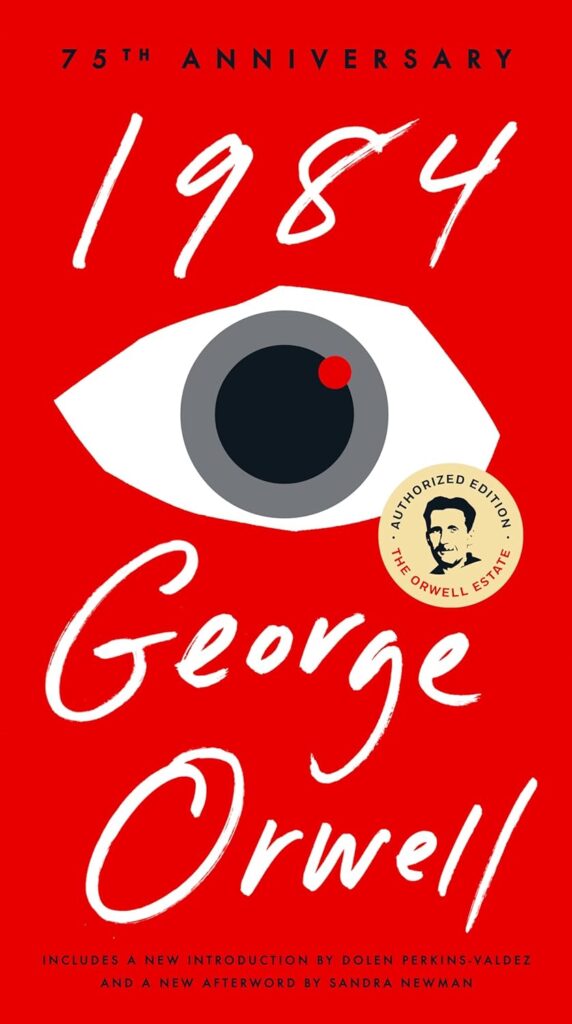
Overview: “1984” presents a dystopian future where a totalitarian regime, led by Big Brother, exercises absolute control over citizens. The protagonist, Winston Smith, attempts to resist the oppressive system.
Why It’s Essential: Orwell’s novel is a powerful critique of totalitarianism and a warning about the dangers of surveillance and censorship. Its themes remain relevant in today’s world, making it a must-read.
Personal Anecdote: The first time I read “1984,” I was struck by its chilling relevance. Orwell’s vision of a society under constant surveillance felt eerily familiar in our digital age. Winston’s struggle for freedom and individuality resonated deeply with me, sparking many late-night discussions with friends about the state of our own society.
Brave New World by Aldous Huxley
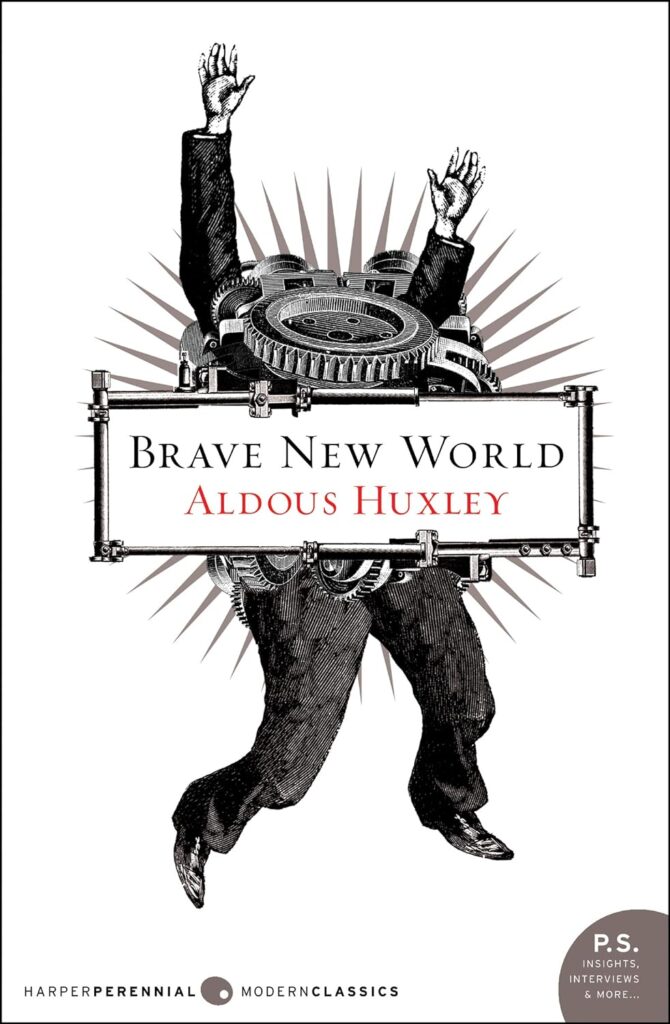
Overview: In “Brave New World,” Huxley imagines a future where technological advancements and genetic engineering have created a superficially perfect society. However, this utopia comes at the cost of individuality and true happiness.
Why It’s Essential: Huxley’s novel raises important questions about the role of technology in our lives and the potential loss of individuality. It’s a thought-provoking exploration of the ethical implications of scientific progress.
Personal Anecdote: Reading “Brave New World” was a fascinating experience. Huxley’s vision of a society obsessed with pleasure and efficiency made me reflect on our own cultural values. The novel’s eerie predictions about the future of technology and human conditioning felt like a wake-up call, urging me to consider the direction in which our world is heading.
Epic and Historical Novels
War and Peace by Leo Tolstoy
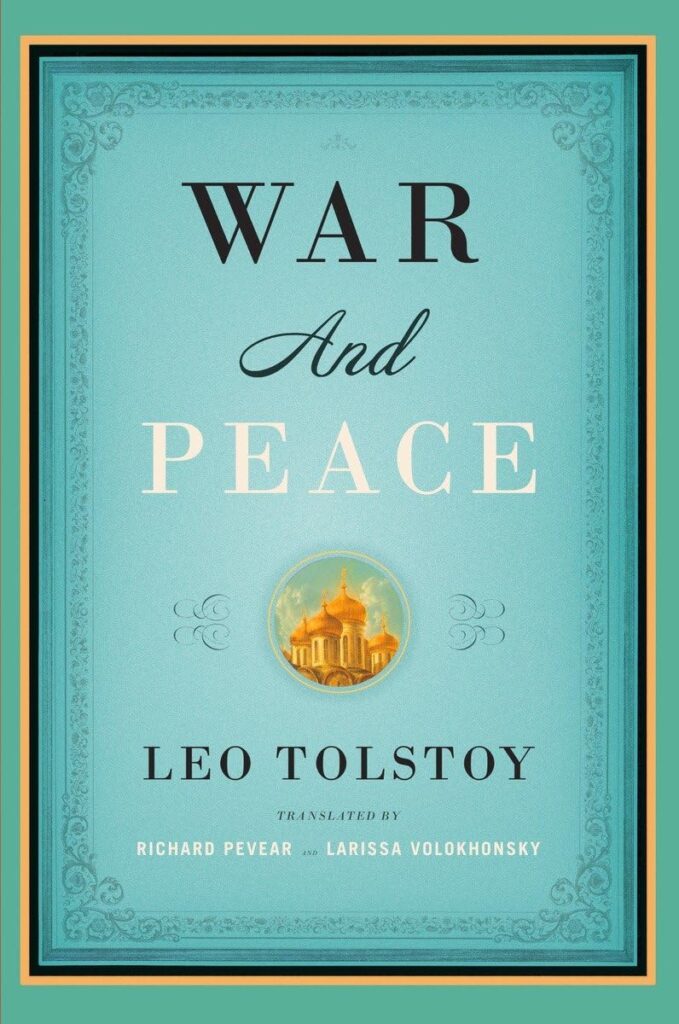
Overview: “War and Peace” is an epic novel that interweaves the lives of several Russian aristocratic families against the backdrop of the Napoleonic Wars. It explores themes of war, peace, and the complexities of human nature.
Why It’s Essential: Tolstoy’s masterpiece is celebrated for its detailed historical context and deep philosophical insights. The novel’s vast scope and richly developed characters make it a cornerstone of world literature.
Personal Anecdote: I tackled “War and Peace” during a long holiday break, and it was an immersive journey. Tolstoy’s ability to capture the vastness of human experience, from the horrors of battle to the intricacies of everyday life, was astonishing. The novel’s exploration of fate and free will left me pondering these profound questions long after I finished reading.
The Odyssey by Homer
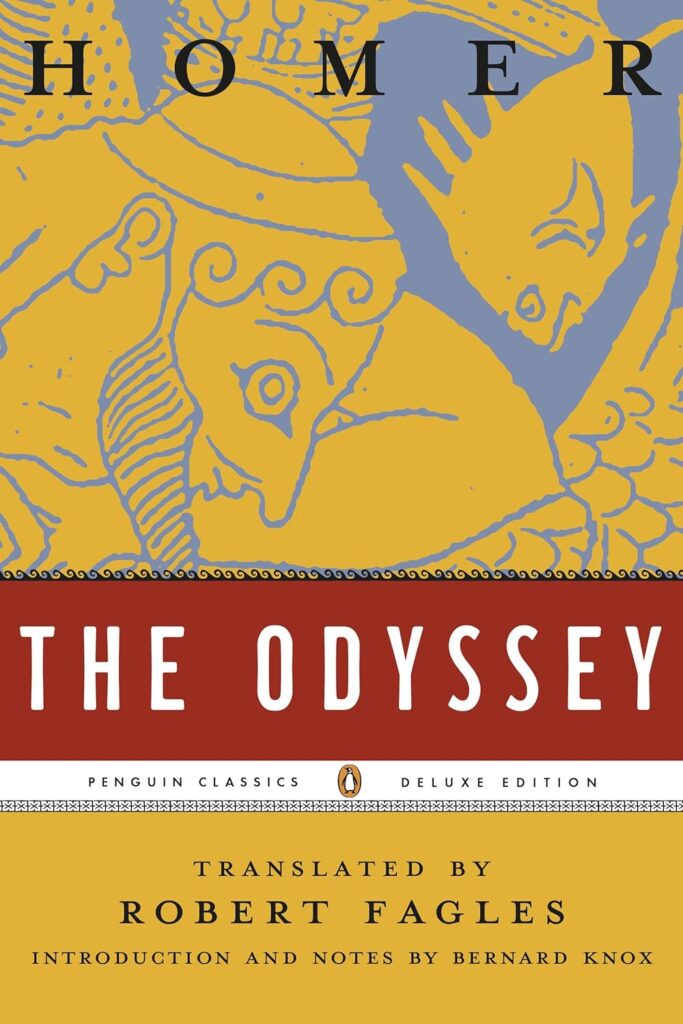
Overview: “The Odyssey” follows the adventures of Odysseus as he attempts to return home from the Trojan War. Along the way, he faces numerous trials, including encounters with mythical creatures and divine beings.
Why It’s Essential: As one of the earliest and most influential works of Western literature, “The Odyssey” is a timeless tale of heroism, adventure, and perseverance. Its themes continue to resonate with modern readers.
Personal Anecdote: Reading “The Odyssey” felt like embarking on a grand adventure. The vivid imagery and dramatic encounters with gods and monsters transported me to a different world. Odysseus’s cunning and determination were inspiring, reminding me of the power of resilience and ingenuity in overcoming life’s challenges.
Don Quixote by Miguel de Cervantes
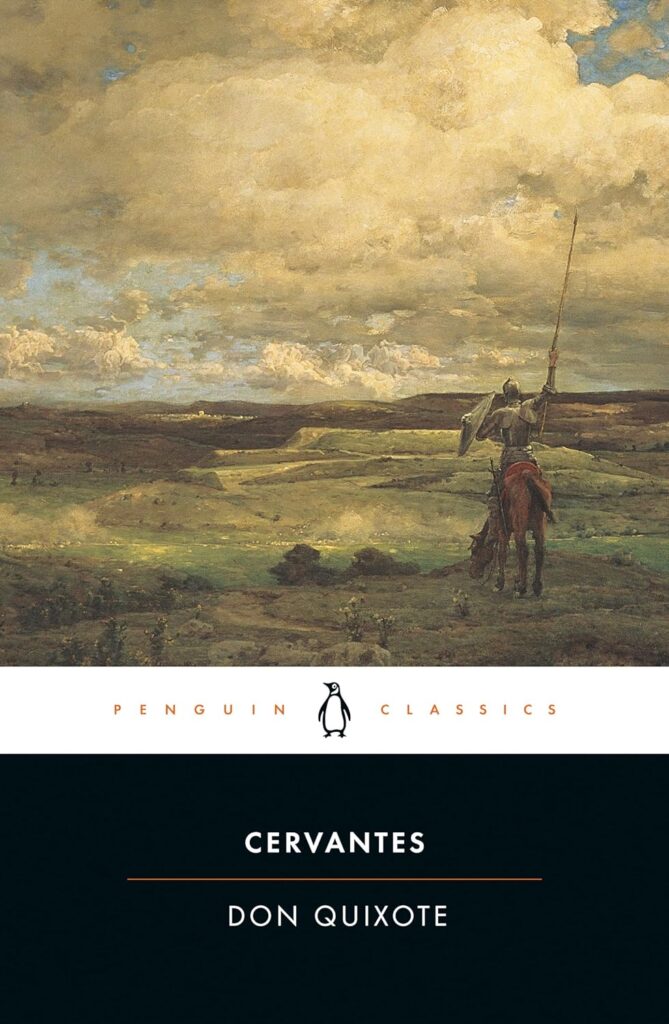
Overview: “Don Quixote” chronicles the misadventures of a nobleman who, inspired by chivalric romances, sets out to revive knighthood. His delusions lead to a series of humorous and poignant encounters.
Why It’s Essential: Cervantes’ novel is a brilliant satire of idealism and reality. Its rich humor and deep exploration of human nature have made it a timeless classic.
Personal Anecdote: I read “Don Quixote” during a particularly stressful period, and its humor provided much-needed relief. The absurdity of Don Quixote’s quests and his unwavering belief in chivalric ideals were both entertaining and thought-provoking. The novel’s blend of comedy and tragedy resonated with me, highlighting the complexities of human aspirations and delusions.
Psychological and Moral Novels
Crime and Punishment by Fyodor Dostoevsky
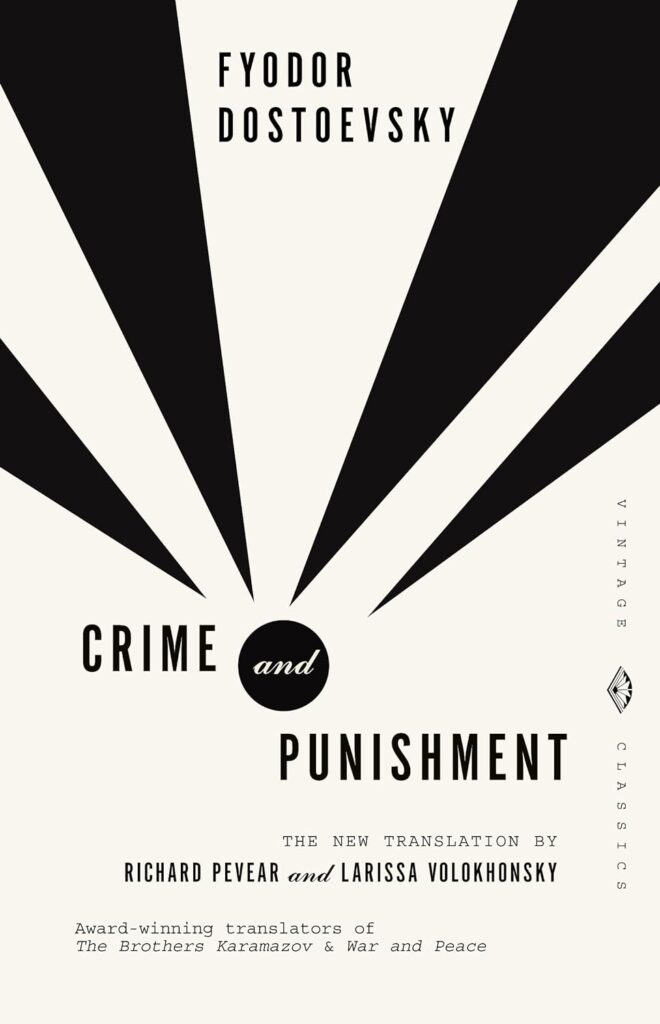
Overview: “Crime and Punishment” follows Raskolnikov, a destitute former student, who commits a murder and grapples with intense guilt and psychological torment. The novel explores themes of morality, justice, and redemption.
Why It’s Essential: Dostoevsky’s deep psychological exploration and philosophical insights make this novel a profound and gripping read. It delves into the complexities of the human psyche and the moral dilemmas we face.
Personal Anecdote: The intensity of “Crime and Punishment” kept me glued to the pages. Raskolnikov’s inner turmoil and descent into madness were portrayed with such realism that I often found myself reflecting on the nature of guilt and morality. Dostoevsky’s ability to capture the darkest aspects of human nature was both unsettling and captivating.
The Brothers Karamazov by Fyodor Dostoevsky
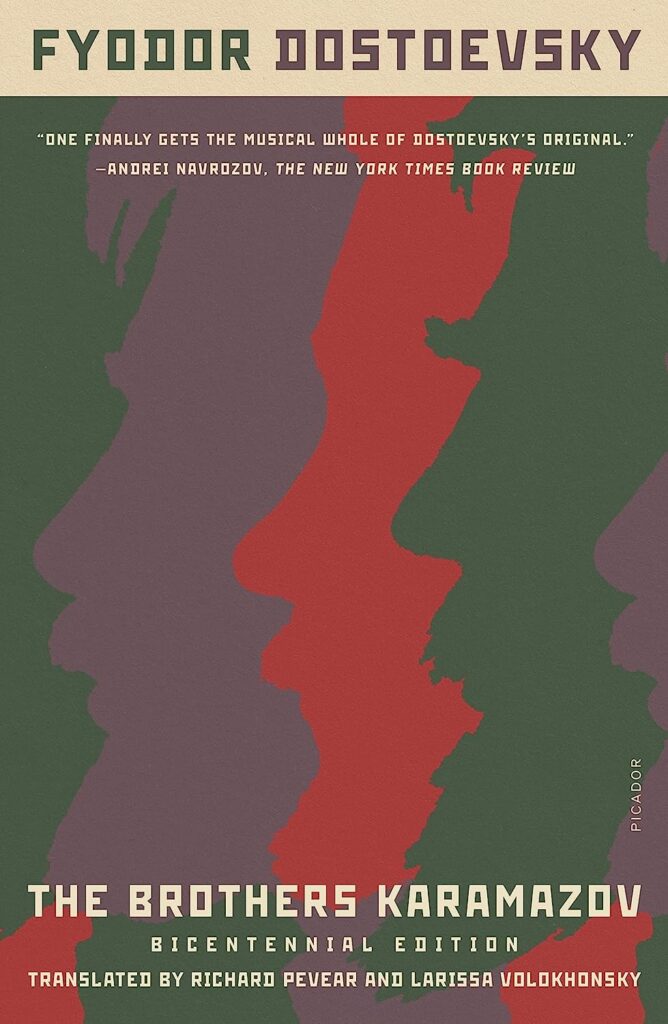
Overview: “The Brothers Karamazov” is a multi-faceted novel that delves into the lives of the Karamazov family. It explores themes of faith, doubt, and the search for meaning through the lens of familial relationships and philosophical debates.
Why It’s Essential: This novel is considered one of the greatest achievements in literature for its deep philosophical questions and complex characters. Dostoevsky’s exploration of faith and doubt is both profound and thought-provoking.
Personal Anecdote: Reading “The Brothers Karamazov” was a profound experience. The philosophical dialogues between the brothers made me question my own beliefs and values. Dostoevsky’s exploration of existential themes and his ability to portray the human condition with such depth and empathy left a lasting impact on me.
Madame Bovary by Gustave Flaubert
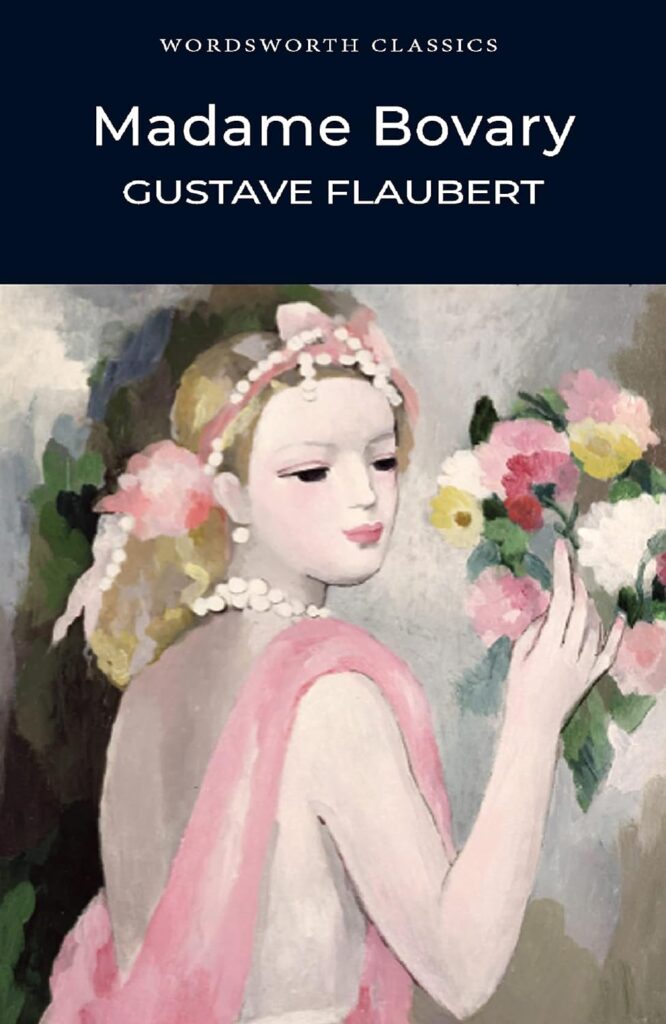
Overview: “Madame Bovary” tells the story of Emma Bovary, a woman who seeks escape from her mundane provincial life through romantic fantasies and extramarital affairs. Her pursuit of unattainable ideals leads to tragic consequences.
Why It’s Essential: Flaubert’s novel is a masterful critique of romanticism and social norms. His meticulous prose and unflinching portrayal of Emma’s plight make it a cornerstone of realist literature.
Personal Anecdote: I remember feeling both frustrated and sympathetic towards Emma Bovary. Her constant yearning for something more and her ultimate downfall were portrayed with such precision that I couldn’t help but reflect on the dangers of unrealistic expectations and the harsh realities of life. Flaubert’s attention to detail and his critical eye made “Madame Bovary” a deeply engaging read.
American Classics
To Kill a Mockingbird by Harper Lee
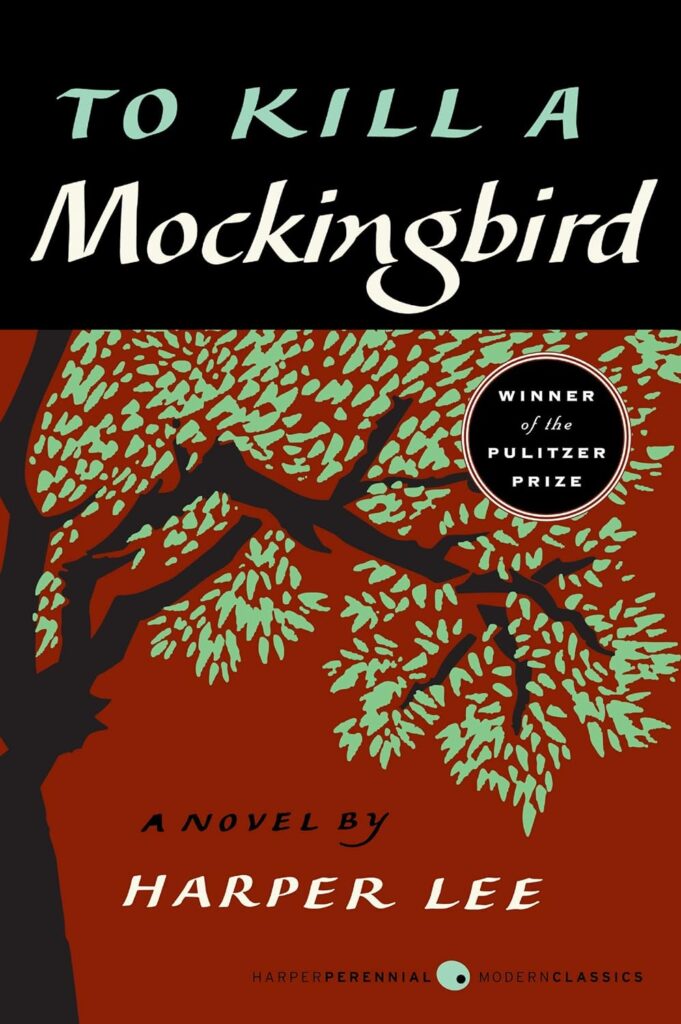
Overview: Set in the racially segregated American South, “To Kill a Mockingbird” follows Scout Finch as her father, Atticus, defends a black man falsely accused of raping a white woman. The novel addresses themes of racial injustice and moral growth.
Why It’s Essential: Harper Lee’s novel is a poignant exploration of prejudice and moral courage. Its impact on American culture and its enduring relevance make it a must-read.
Personal Anecdote: “To Kill a Mockingbird” was a required reading in my high school, and it left a profound impact on me. Scout’s innocent perspective and Atticus’s unwavering integrity made me deeply reflect on issues of justice and empathy. The novel’s exploration of human goodness in the face of evil was both moving and inspiring.
The Great Gatsby by F. Scott Fitzgerald
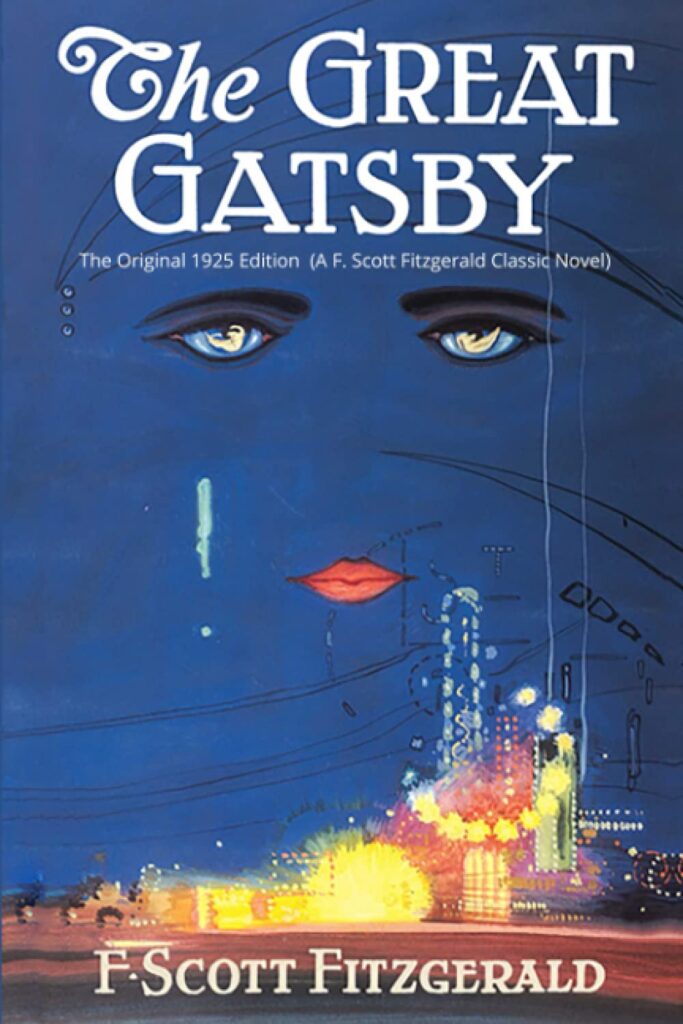
Overview: “The Great Gatsby” is set in the Roaring Twenties and follows the mysterious Jay Gatsby and his unrelenting pursuit of the American Dream. The novel explores themes of wealth, love, and the illusion of the American Dream.
Why It’s Essential: Fitzgerald’s critique of the American Dream and his portrayal of the Jazz Age make this novel a timeless classic. Its lyrical prose and tragic storyline continue to captivate readers.
Personal Anecdote: I read “The Great Gatsby” during a summer vacation, and the glitz and glamour of Gatsby’s parties contrasted starkly with the underlying sense of despair and longing. Fitzgerald’s poetic writing and his incisive critique of the American Dream made me reconsider my own aspirations and values. The novel’s tragic ending left a lingering sense of melancholy and introspection.
The Grapes of Wrath by John Steinbeck
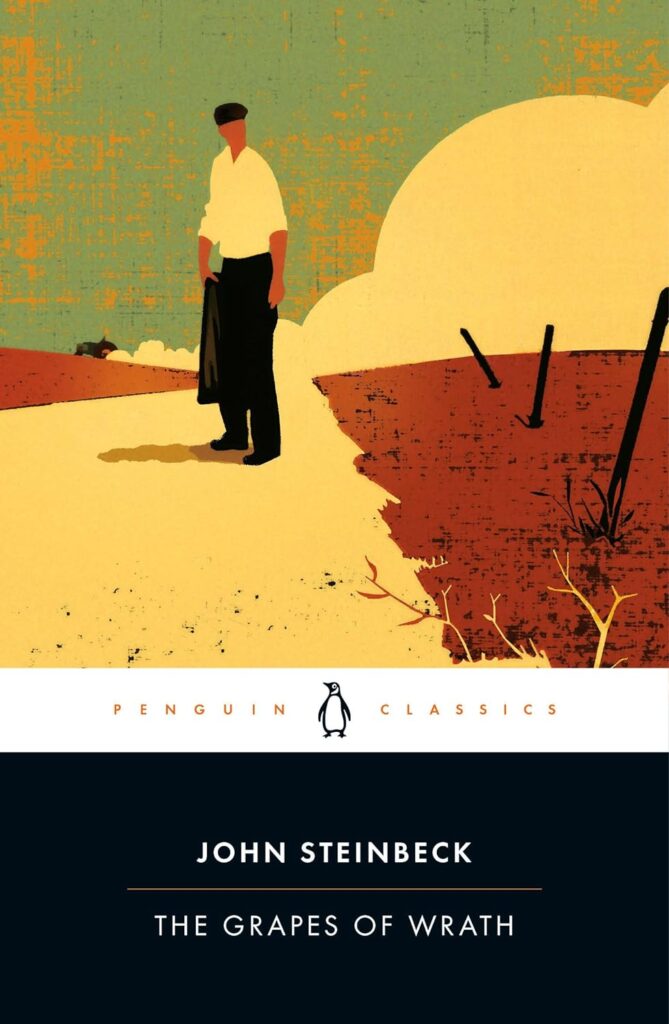
Overview: “The Grapes of Wrath” follows the Joad family as they migrate westward during the Great Depression in search of a better life. The novel addresses themes of poverty, resilience, and social justice.
Why It’s Essential: Steinbeck’s powerful portrayal of the struggles faced by migrant workers during the Great Depression makes this novel an enduring testament to human resilience. Its social commentary and emotional depth make it a must-read.
Personal Anecdote: Reading “The Grapes of Wrath” was an eye-opening experience. Steinbeck’s vivid descriptions of the Joad family’s hardships and their unwavering determination moved me deeply. The novel’s exploration of social injustice and human dignity resonated with me, reminding me of the importance of empathy and solidarity in the face of adversity.
Gothic and Science Fiction Novels
Frankenstein by Mary Shelley
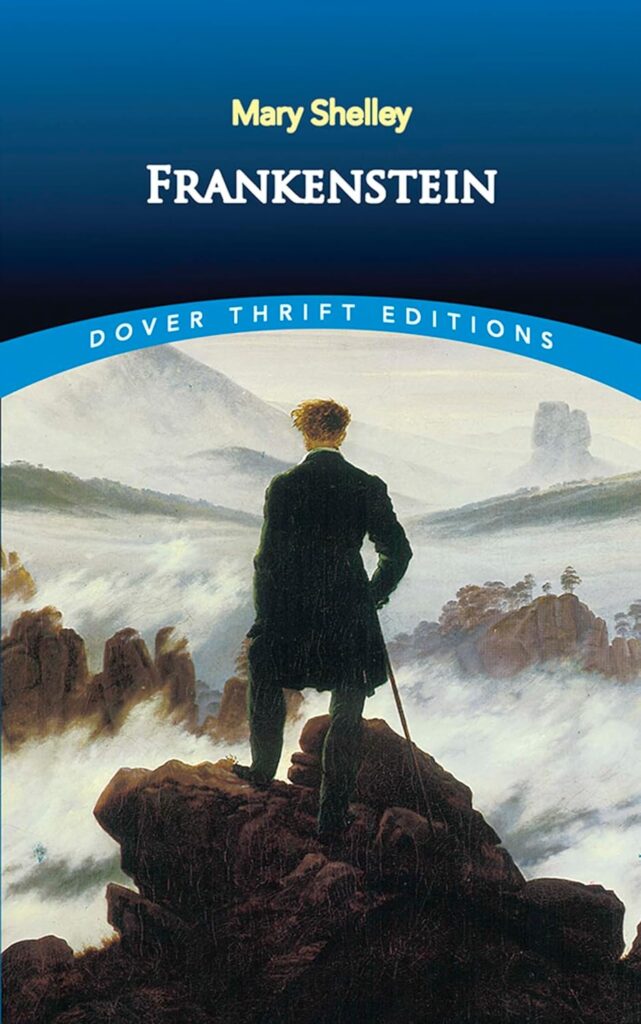
Overview: “Frankenstein” tells the story of Victor Frankenstein, a scientist who creates a sentient creature through unorthodox scientific experiments. The novel explores themes of ambition, ethical responsibility, and the consequences of playing god.
Why It’s Essential: Shelley’s novel is often considered the first science fiction work, and its themes of scientific ethics and human responsibility remain relevant today. Its blend of gothic horror and philosophical inquiry makes it a compelling read.
Personal Anecdote: I first read “Frankenstein” on a stormy night, which added to the eerie atmosphere of the novel. Shelley’s exploration of the consequences of unchecked ambition and the monster’s poignant search for acceptance made me reflect on the ethical implications of scientific advancement. The novel’s haunting themes and emotional depth left a lasting impression on me.
Coming-of-Age and Modernist Novels
The Catcher in the Rye by J.D. Salinger
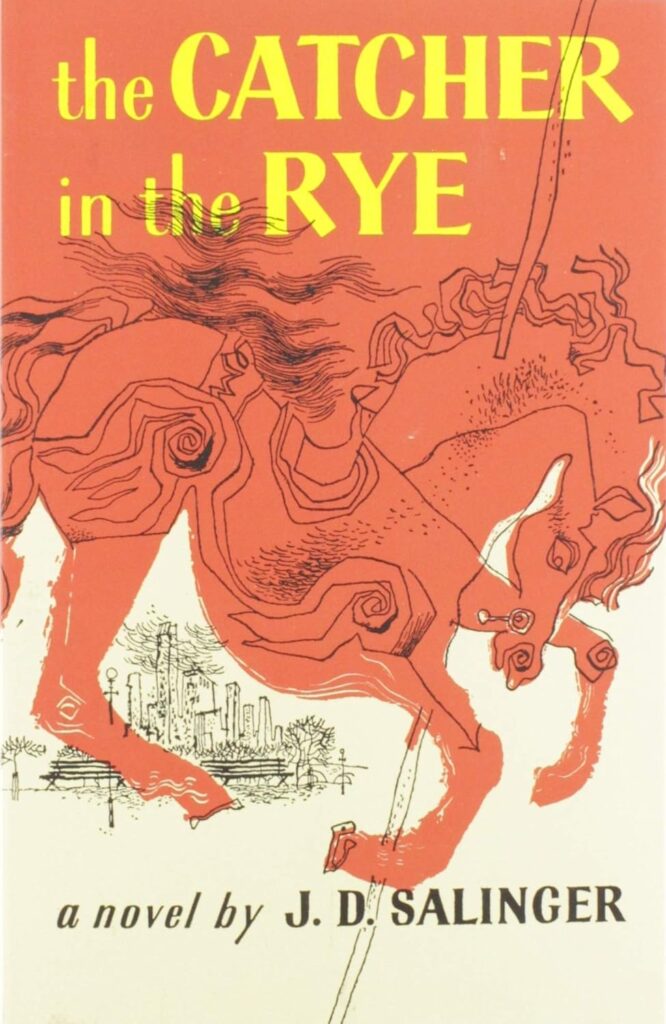
Overview: “The Catcher in the Rye” follows Holden Caulfield, a disaffected teenager, as he navigates the challenges of adolescence and alienation in 1950s New York City. The novel explores themes of identity, innocence, and rebellion.
Why It’s Essential: Salinger’s portrayal of teenage angst and his critique of societal norms have made this novel a defining work of American literature. Its candid exploration of adolescence continues to resonate with readers.
Personal Anecdote: Reading “The Catcher in the Rye” as a teenager, I found Holden’s rebellious spirit and sense of disillusionment incredibly relatable. His desire to protect the innocence of children, symbolized by his dream of being the “catcher in the rye,” struck a chord with me. Salinger’s raw and honest portrayal of adolescence made me feel understood and less alone in my own struggles.
Great Expectations by Charles Dickens
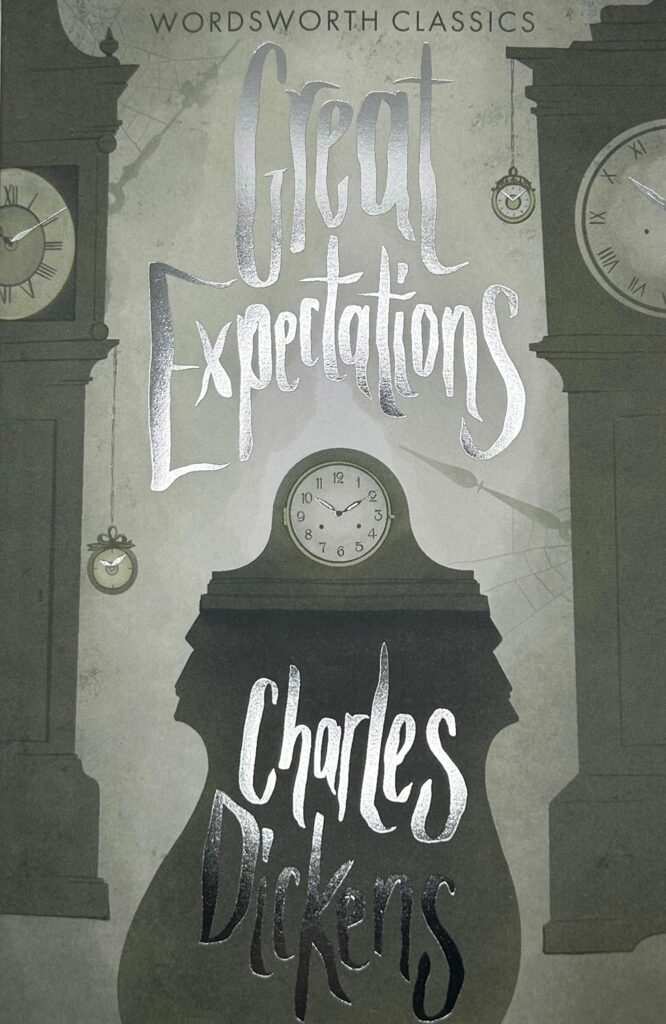
Overview: “Great Expectations” follows the life of Pip, an orphan who rises from humble beginnings to wealth and social status, only to learn valuable life lessons along the way. The novel addresses themes of ambition, social class, and personal growth.
Why It’s Essential: Dickens’ critique of Victorian society and his memorable characters make this novel a timeless classic. Its exploration of human development and the pursuit of true happiness is universally relevant.
Personal Anecdote: I read “Great Expectations” during a particularly challenging time in my life, and Pip’s journey from naive optimism to mature understanding provided me with comfort and insight. Dickens’ rich storytelling and his ability to capture the complexities of human nature made the novel a deeply rewarding read.
Moby-Dick by Herman Melville
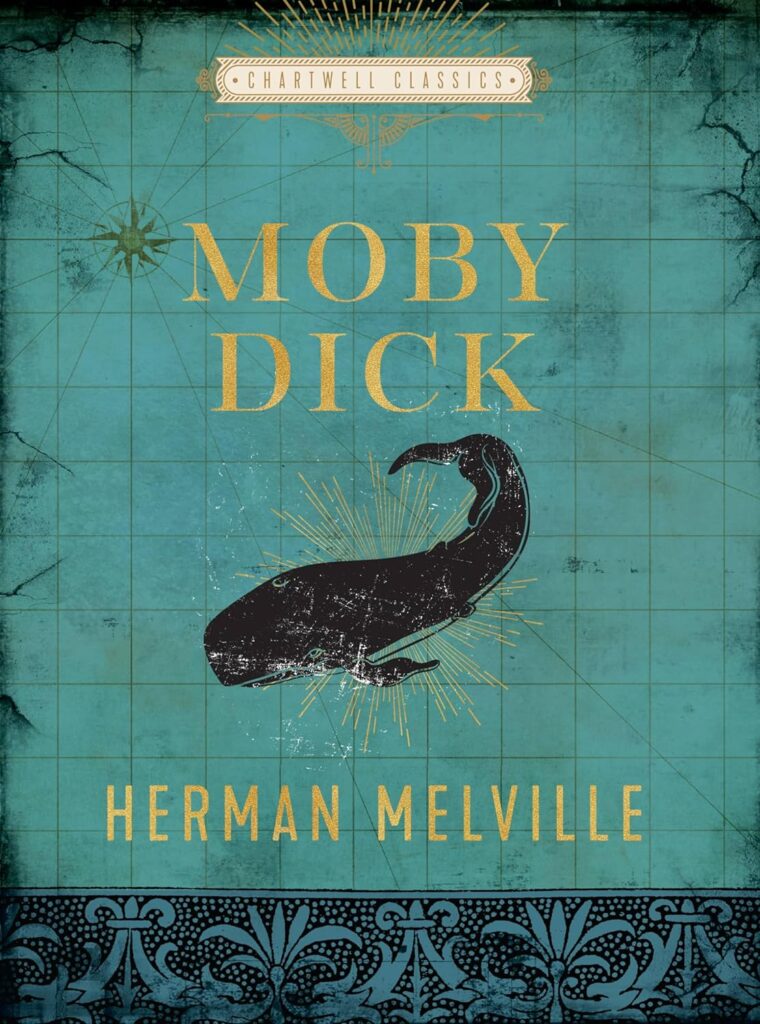
Overview: “Moby-Dick” follows the obsessive quest of Captain Ahab to hunt down the elusive white whale, Moby Dick. The novel explores themes of obsession, revenge, and the human struggle against nature.
Why It’s Essential: Melville’s novel is celebrated for its symbolic depth and narrative complexity. Its exploration of the human condition and the natural world makes it a profound and thought-provoking read.
Personal Anecdote: Reading “Moby-Dick” felt like embarking on a vast and unpredictable journey. Melville’s rich descriptions of the sea and the intricacies of whaling captivated my imagination. Ahab’s relentless pursuit of the whale and the novel’s exploration of obsession and fate left me pondering the deeper meaning of life’s pursuits and the consequences of single-minded ambition.
Ulysses by James Joyce
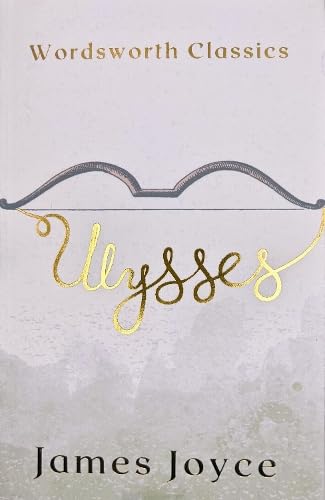
Overview: “Ulysses” parallels Homer’s “Odyssey” by chronicling a single day in the life of Leopold Bloom in Dublin. The novel is renowned for its stream-of-consciousness style and exploration of themes like heroism, everyday life, and literary innovation.
Why It’s Essential: Joyce’s experimental narrative and rich intertextuality have made “Ulysses” a cornerstone of modernist literature. Its innovative style and depth of thought make it a challenging but rewarding read.
Personal Anecdote: Tackling “Ulysses” was one of the most intellectually stimulating reading experiences I’ve ever had. Joyce’s dense and intricate prose required patience and perseverance, but the novel’s profound insights into human experience and its literary brilliance made it a truly transformative read.
Conclusion
These 20 essential classic novels offer a diverse array of themes, styles, and cultural perspectives. Each one has left an indelible mark on literature and continues to inspire readers with its timeless wisdom and beauty. Whether you’re seeking profound philosophical insights, thrilling adventures, or poignant reflections on the human condition, these novels provide a rich tapestry of experiences that are sure to leave a lasting impact on your literary journey. Happy reading!
